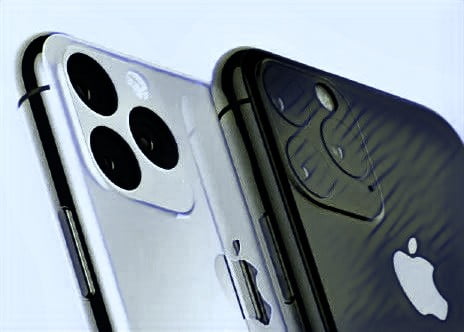Business
Apple is playing catch-up. New iPhones won’t help
Apple’s expected launch on Tuesday of the iPhone 11, iPhone 11 Pro and iPhone 11 Pro Max marks a continuation of its shift from offense to defense.


Once synonymous with innovation — such as the first widely accepted all-screen phone and the launch of the App Store — Apple has gone from being the explorer of new territories to the defender of its fortress. Instead of attracting new customers to the Apple ecosystem with breakthrough innovation, Apple is focusing on preventing its loyal customers from defecting to Android-based devices.
The incremental level of innovation in the iPhone 11 lineup is a sign of a broader problem for Apple. Not only is Apple running out of innovative ideas for the iPhone, but the whole smartphone category has matured to the point that innovation and sales may have peaked. That was my argument when the iPhone X came out almost two years ago and, in my mind, signaled a plateau in hardware innovation. In fact, I foresee the smartphone being progressively replaced by a plethora of smart devices with purpose-built display and functions — instead of relying on one single device for all that we do with digital services.
Apple’s defensive stance can be seen in the expectations for the iPhone 11 lineup. The only talked-about improvement is said to be a camera system with three cameras on the back, and artificial intelligence (AI) that improves photo and video editing. While these features may satisfy loyal Apple customers, they aren’t revolutionary. Earlier this year, Samsung released the Galaxy S10 with four cameras. When it comes to putting AI in smartphones, Google is also in this space with the Pixel 3.
Clearly, Apple is playing catchup. It doesn’t have a foldable or bendable screen; Samsung unveiled that earlier this year and in so doing took the innovation lead over Apple. The superfast 5G phone is available, but not from Apple.
At some point, Apple will no doubt bring out iPhones with these innovations as well. And when it does, it will undoubtedly fire up its marketing machine to give the impression that Apple has “invented” the 5G phone or the foldable/bendable screen. The Apple brand carries an aura that still convinces people that it is the first to market with innovations, or at least the first to get the innovations right.
The question is: How long can that last? Apple’s catchup game with incremental improvements in high-end phones may keep people loyal to its brand ecosystem. But the lack of real innovation will not result in market share gains. Keep in mind there is a subtle difference between a loyal customer who truly believes in a brand and one who is held hostage by the difficulty of leaving Apple’s walled garden.
Apple has been largely a one-trick pony, although it’s a darn good trick that has garnered the company a valuation of about $1 trillion. That pony, though is clearly running out of steam, which is why Apple has been emphasizing its longer-term game plan of selling services, including Apple Pay and Apple Music. Indeed, services might build a new revenue stream, but they’re not a transformational business that will allow Apple to regain the title of lead innovator. When it comes to overall technological innovation, others are passing Apple by: Samsung and Google in smartphones and, in a separate but related area, Microsoft in AI.
Brand loyalty lasts a long time, particularly when the brand is as powerful as Apple with a strong legacy of creating the new and different. But from what we’ve seen, there is no reason to expect Apple will soon start exploring new frontiers. For now, at least, it’s comfortable being holed up in its fortress.
Article: CNN Philippines



